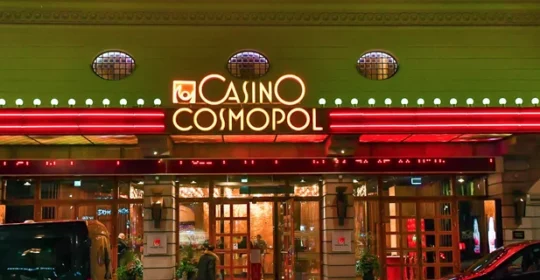Swedish gambling regulations have been a topic of much debate and discussion in recent years. As Sweden has tightened its gambling laws, there has been a notable shift in player behaviour. The regulations, aimed at promoting responsible gambling and protecting consumers, have had several unintended consequences.
One of these is the rise of “Casino utan svensk licens,” or casinos without a Swedish licence. These casinos have become an alternative for players looking for a different experience or seeking to bypass the restrictions imposed by Swedish authorities.
Why Swedish casinos are facing competition from unlicensed sites
The Swedish government introduced the Gambling Act in 2019, which required all gambling operators to obtain a Swedish licence to offer their services to Swedish players. This move was intended to bring more control and transparency to the gambling industry. However, it also led to the emergence of unlicensed casinos that operate outside the Swedish regulatory framework.
So, why do players turn to these unlicensed casinos? According to Goplay.se, one of the biggest casino comparison sites in Sweden, many players feel that the Swedish gambling laws are too strict, and therefore choose casino utan svensk licens. Wille P, author at Goplay.se, says: “The purpose of the law is to prioritise the safety of the players. Despite this, there is no obstacle why players should not be able to play at a casino without a Swedish licence.”
With many players choosing foreign casinos rather than the Swedish ones, are the regulations achieving their intended goals? And what does the future hold for Swedish gambling laws? We take a look below.

The evolution of Swedish gambling laws
Sweden's journey towards stringent gambling regulations has been a long one. Historically, the Swedish gambling market was monopolised by state-owned companies like Svenska Spel. This monopoly was meant to control gambling activities and ensure that the profits were used for the public good. However, the advent of the internet brought about a significant change. Online gambling became increasingly popular, and foreign operators began targeting Swedish players.
In response, the Swedish government decided to liberalise the market. The Gambling Act of 2019 was a landmark piece of legislation that opened up the Swedish gambling market to private operators. The new law required all operators to obtain a licence from the Swedish Gambling Authority (SGA). The SGA was given extensive powers to regulate the market, including the ability to impose fines and revoke licences.
The primary goals of the new regulations were to protect consumers, prevent problem gambling, and ensure that gambling activities were conducted in a fair and transparent manner. To achieve these goals, the regulations included several measures such as mandatory self-exclusion options, deposit limits, and strict advertising rules.
Despite these measures, the regulations have faced criticism. Some argue that the restrictions are too stringent and have driven players to seek alternatives. For instance, the deposit limits and self-exclusion options, whilst well-intentioned, have been seen by some players as overly restrictive. This has led to a growing number of players turning to unlicensed casinos that do not adhere to the same regulations.
Impact on Swedish casino player behavior
The introduction of the Gambling Act has had a profound impact on player behaviour in Sweden. One of the most significant changes has been the shift in preferences from licensed to unlicensed casinos. According to a report by the Swedish Gambling Authority, the number of players using unlicensed casinos has increased steadily since the introduction of the new regulations.
Players have cited several reasons for this shift. One of the main reasons is the perception that unlicensed casinos offer more freedom and flexibility.
👉 For instance, unlicensed casinos often do not have the same deposit limits or self-exclusion options as licensed ones. This allows players to gamble more freely without the constraints imposed by Swedish regulations.
Moreover, unlicensed casinos often offer more attractive bonuses and promotions. The strict advertising rules for licensed casinos mean that they are limited in the types of promotions they can offer. Unlicensed casinos, on the other hand, are not bound by these rules and can offer more lucrative bonuses to attract players.
The impact of these changes on the overall gambling market in Sweden has been significant. Whilst the regulations were intended to protect consumers and promote responsible gambling, they have also led to an increase in the number of players seeking alternatives. This has raised concerns about the effectiveness of the regulations and whether they are achieving their intended goals.
A popular but controversial alternative
The term “Casino utan svensk licens” has become increasingly popular amongst Swedish players. These casinos operate outside the Swedish regulatory framework and do not hold a licence from the Swedish Gambling Authority. Despite this, they have attracted a significant number of players.
One of the key advantages of unlicensed casinos is that they often offer a wider range of games and betting options. Licensed casinos are required to adhere to strict regulations, which can limit the variety of games they can offer. Unlicensed casinos, on the other hand, are not bound by these regulations and can offer a more diverse selection of games.
However, it is important to note that playing at unlicensed casinos comes with its own risks. Since these casinos are not regulated by the Swedish authorities, there is less oversight and protection for Swedish players. This means that players need to be cautious and do their own research before choosing an unlicensed casino.
The path forward for Swedish gambling
The future of Swedish gambling regulations is uncertain. Whilst the current regulations have had some positive effects, such as promoting responsible gambling and protecting consumers, they have also led to unintended consequences. The rise of unlicensed casinos is a clear indication that the regulations may need to be re-evaluated.
One possible future development is the introduction of more flexible regulations. This could involve relaxing some of the restrictions on licensed casinos, such as the deposit limits and advertising rules. By making the licensed market more attractive, the authorities could reduce the number of players turning to unlicensed casinos.
Another potential development is increased cooperation between the Swedish authorities and foreign regulators. This could involve sharing information and best practices to ensure that unlicensed casinos are held to the same standards as licensed ones. This would help protect players and ensure that gambling activities are conducted in a fair and transparent manner.
👉 The preferences of Swedish players are also likely to evolve. As the gambling market continues to change, players may seek new and innovative experiences. This could lead to the emergence of new types of gambling activities and platforms.
In conclusion, the impact of Swedish gambling regulations on player behaviour has been significant. Whilst the regulations have achieved some of their intended goals, they have also led to the rise of unlicensed casinos. Moving forward, it will be important for the authorities to strike a balance between protecting consumers and providing a flexible and attractive gambling market.





